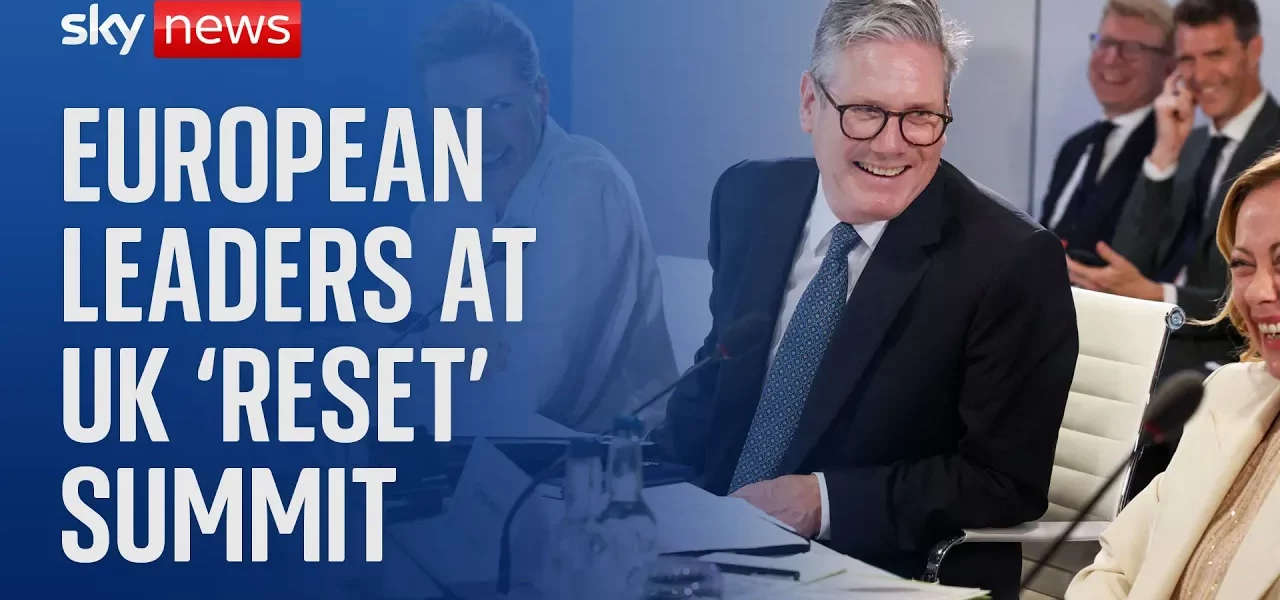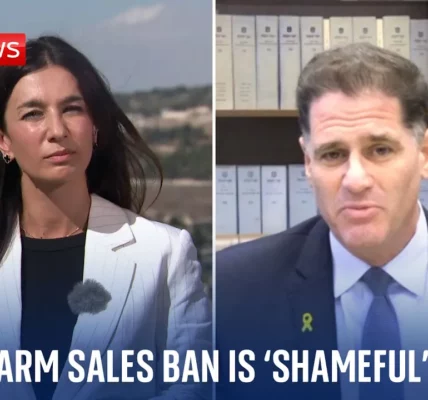A Shifting of the Dial on Migration: Keir Starmer’s New Approach

This article delves into the recent discussions surrounding migration and international relations led by UK Prime Minister Keir Starmer, highlighting the implications for Europe and Ukraine amidst changing political dynamics.
Introduction
The political landscape in Europe is undergoing significant changes, particularly in the realm of migration and international relations. UK Prime Minister Keir Starmer is at the forefront of this dialogue, signaling a need for collaborative efforts across Europe. This article explores the recent shifts in policy, Starmer’s diplomatic engagements, and the broader implications for both the UK and its European neighbors, especially in light of the ongoing conflict in Ukraine.
Keir Starmer’s Approach to Migration
Prime Minister Keir Starmer’s approach marks a notable pivot in the UK’s strategy regarding migration. Understanding the intricacies of this shift requires an analysis of the underlying motivations and the anticipated outcomes.
The Importance of Collaboration
Starmer recognizes that to effectively tackle the issue of illegal migration, the UK must engage with its European allies. This includes:
- Building stronger bilateral agreements to manage migration flows
- Fostering cooperation with European nations to address root causes of migration
- Implementing policies that disincentivize dangerous crossings
Upcoming Engagements with European Leaders
Starmer’s planned dinner with French President Emmanuel Macron highlights the importance of strengthening ties with France. This meeting aims to:
- Discuss joint strategies for managing migration.
- Explore collaborative economic initiatives.
- Enhance diplomatic relations to address shared challenges.
Geopolitical Context: The Situation in Ukraine
While migration dominates current discussions, the situation in Ukraine remains critical. Starmer’s government understands that cooperation on this front is equally essential.
Support for Ukraine
Starmer has reaffirmed the UK’s commitment to supporting Ukraine amid ongoing conflicts. This involves:
- Committing financial aid as promised by former Prime Minister Rishi Sunak.
- Ensuring that NATO maintains a united front against Russian aggression.
Challenges to Unity in Europe
President Volodymyr Zelensky’s recent address at Blenheim Palace emphasized the need for European unity. He pointedly criticized Hungary’s Prime Minister Viktor Orban for his peace overtures to Russia, which threaten to divide the EU’s stance on Ukraine. Key points from his address include:
- The necessity of a united European response to Russian aggression.
- Reaffirming the commitment to not cede any territory to Russia.
- Highlighting the fragility of European unity in the face of changing political landscapes, especially with the potential return of Donald Trump to the White House.
Conclusion
In conclusion, Keir Starmer’s shifting approach towards migration and international relations represents a crucial moment for the UK and its European counterparts. Through strategic engagements and a focus on collaboration, Starmer aims to address the pressing issues of migration while simultaneously supporting Ukraine in its time of need. As these discussions unfold, it is essential for European leaders to remain united in the face of challenges to their collective security and humanitarian commitments. For ongoing updates and insights into European politics, consider exploring our related articles on international relations and migration policies.
“`




